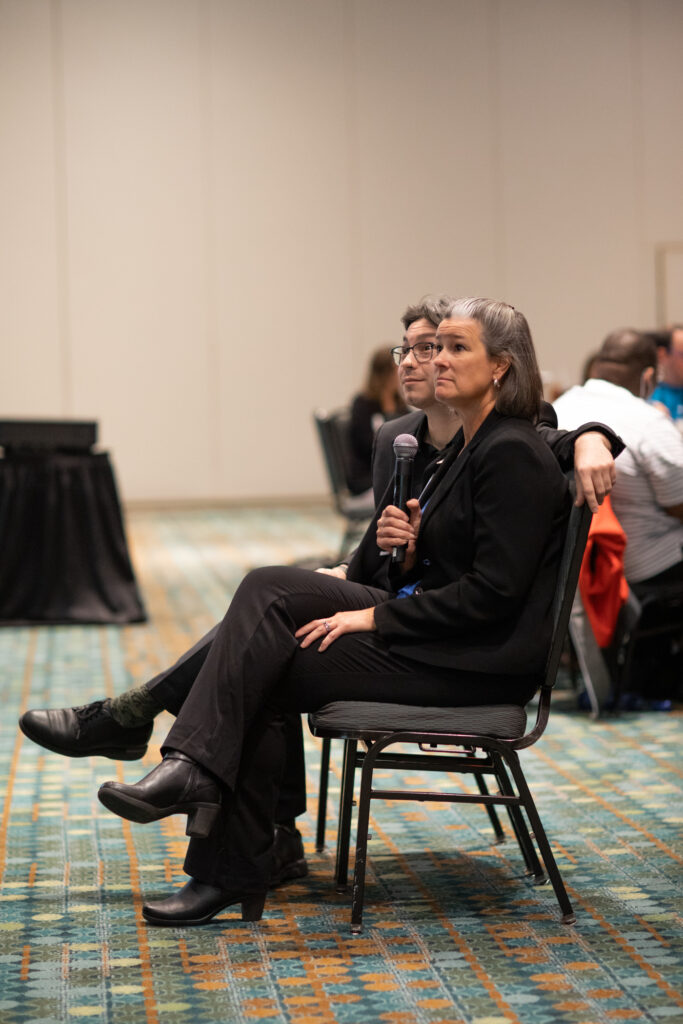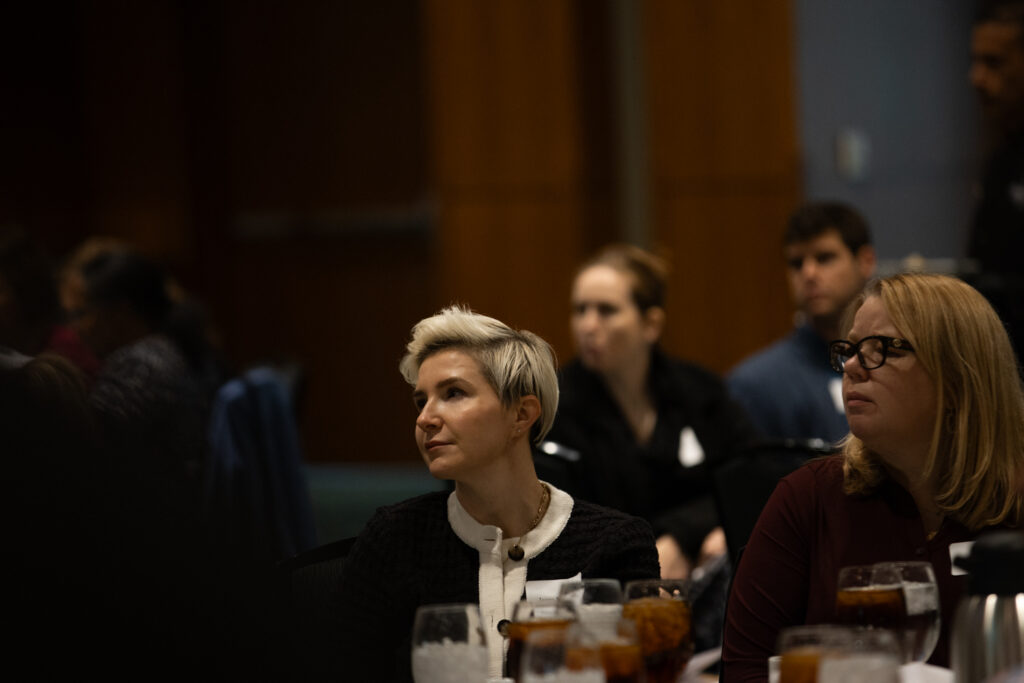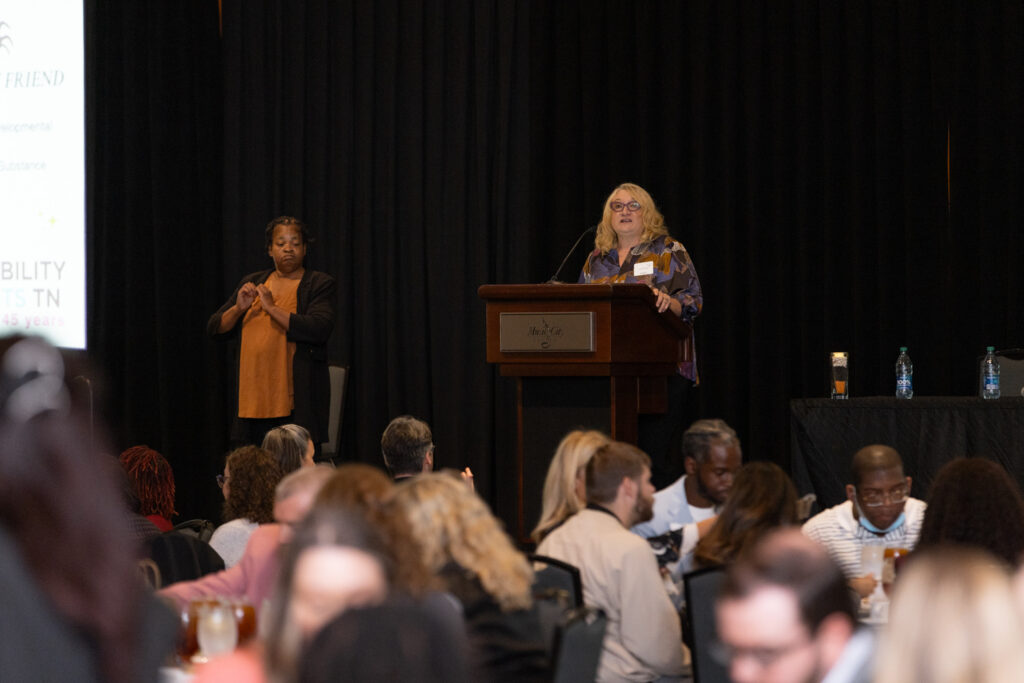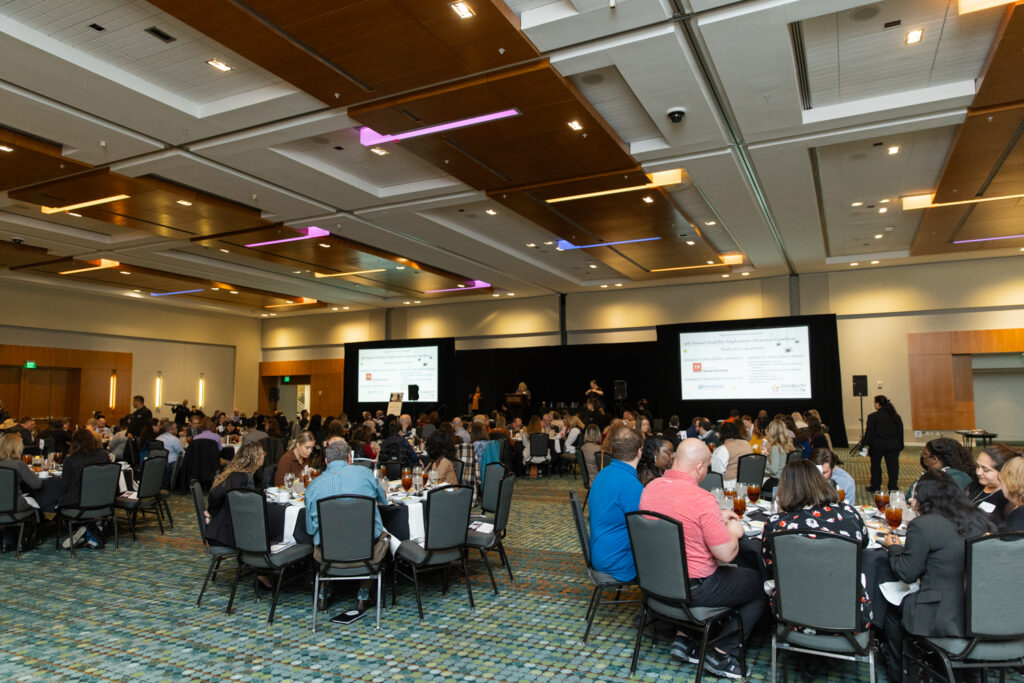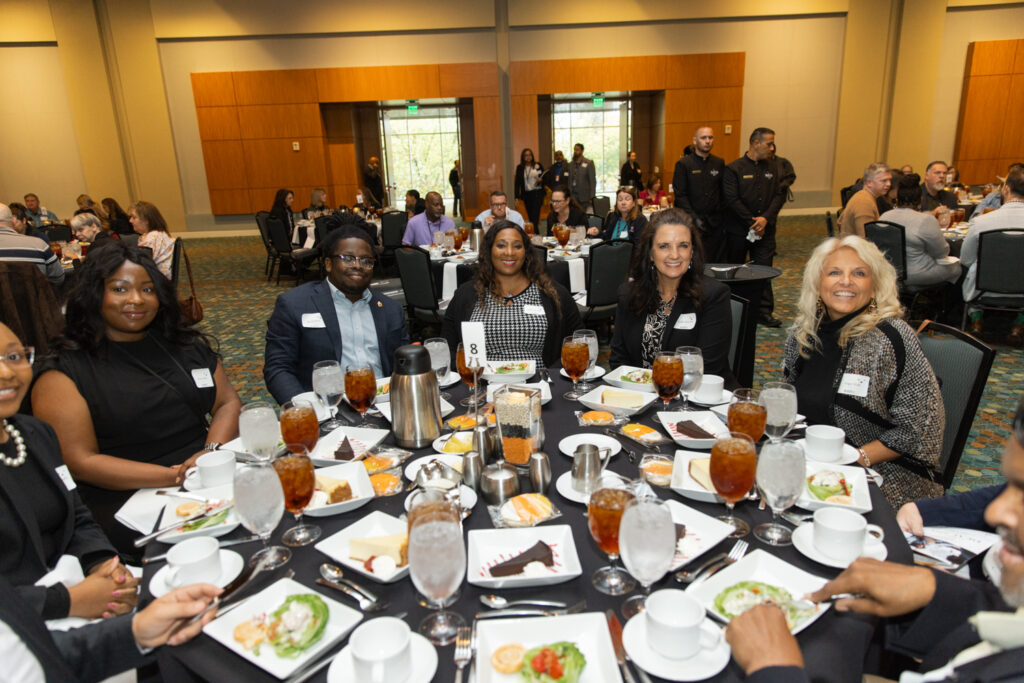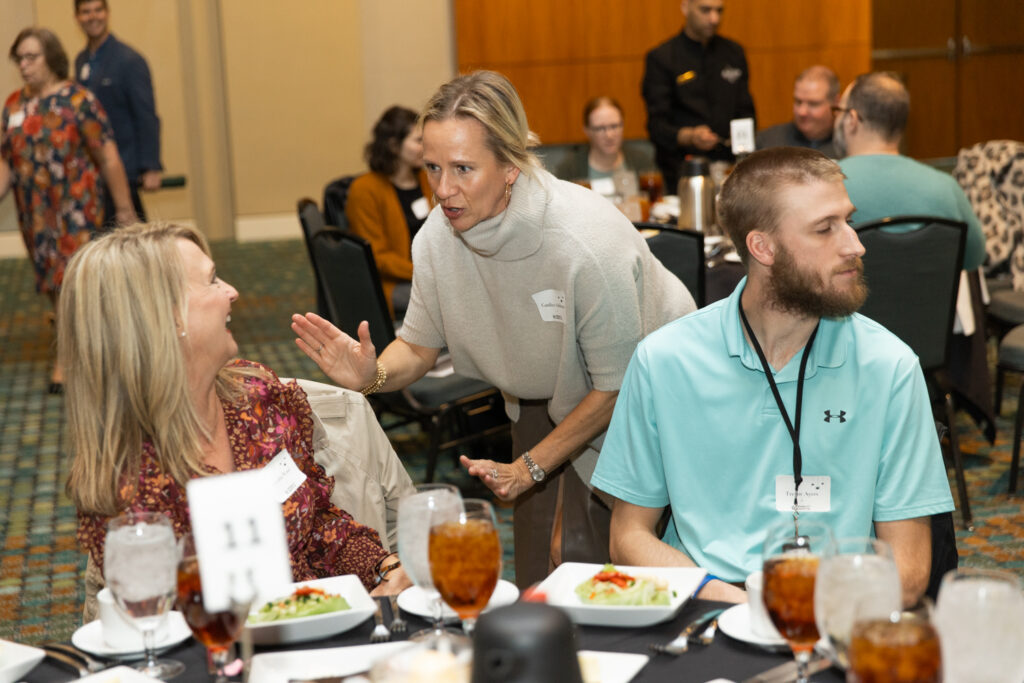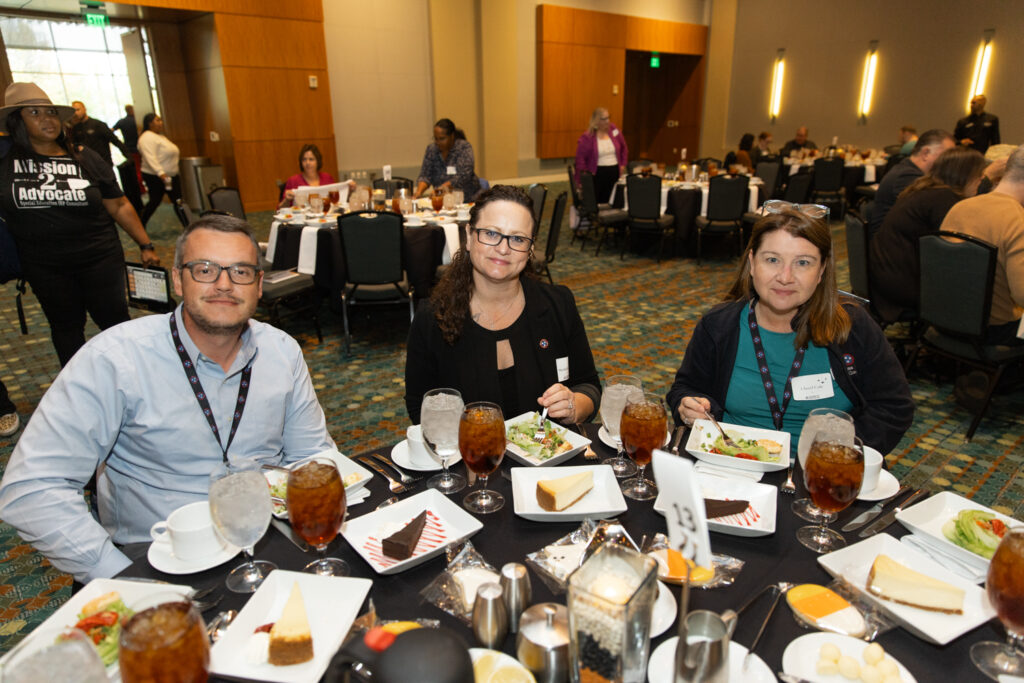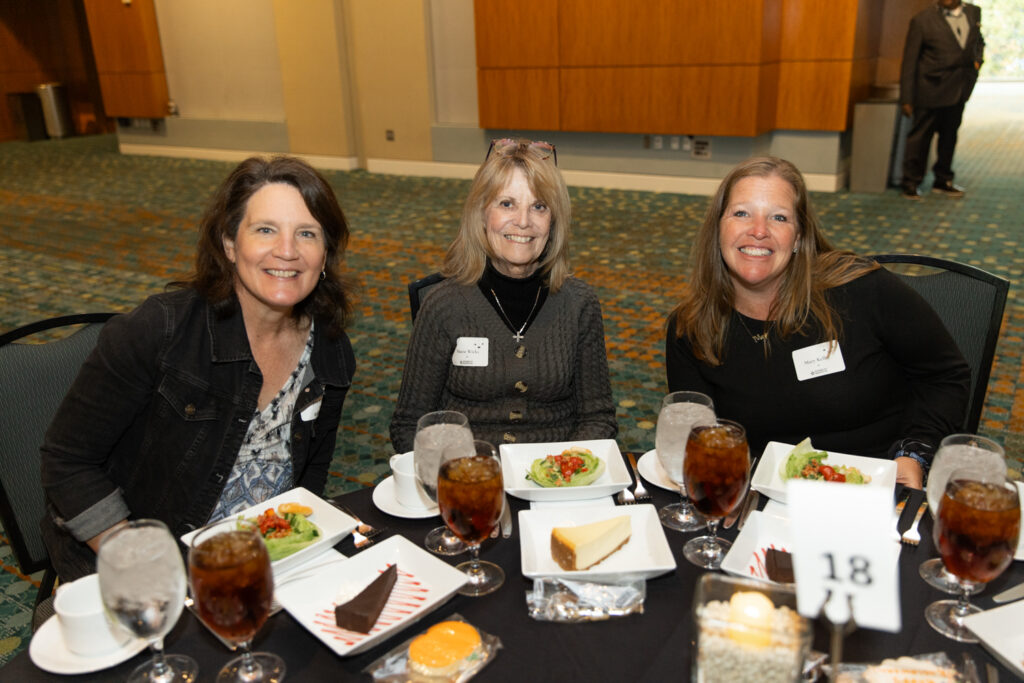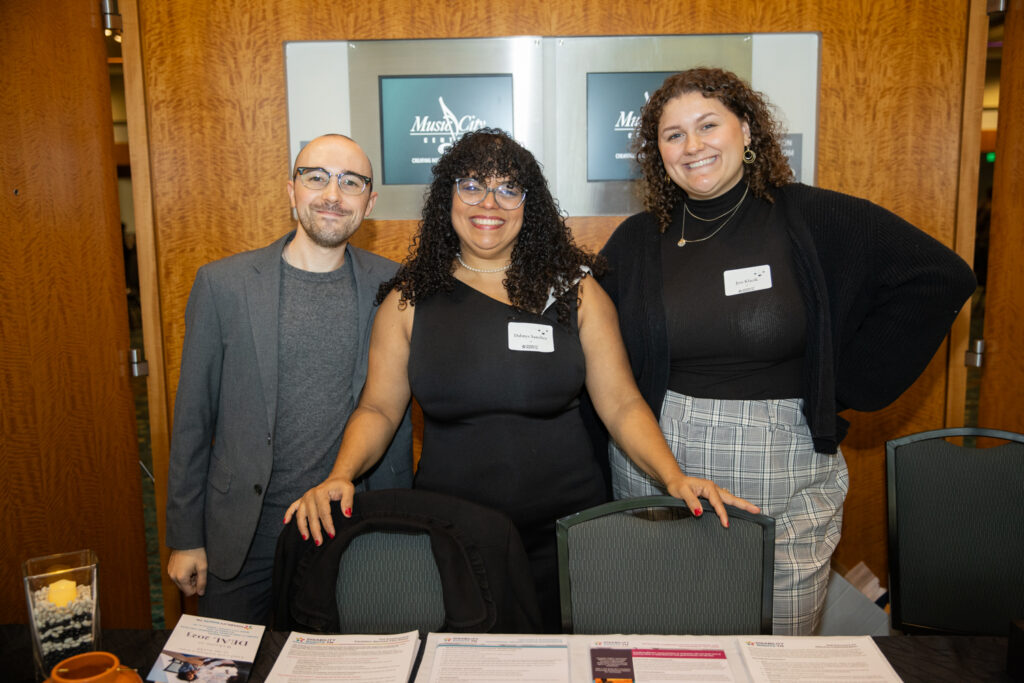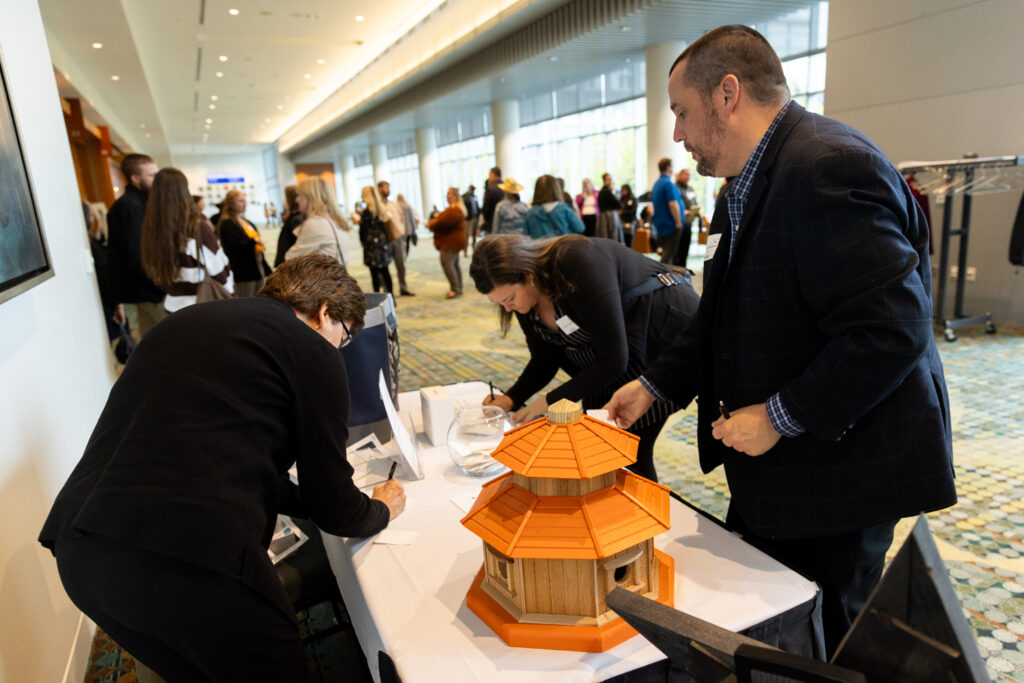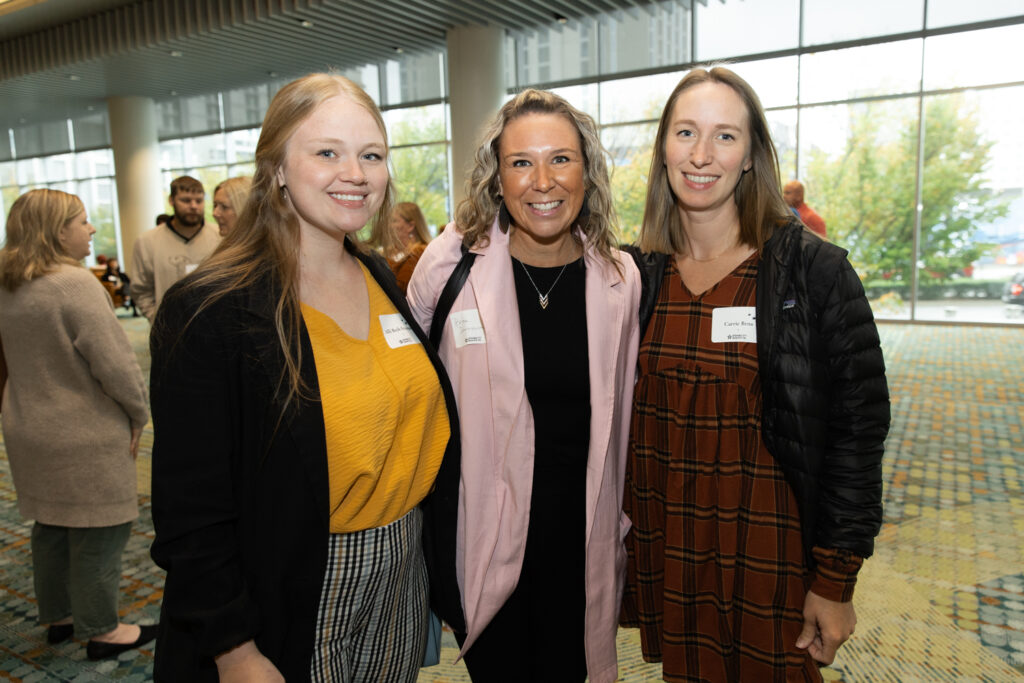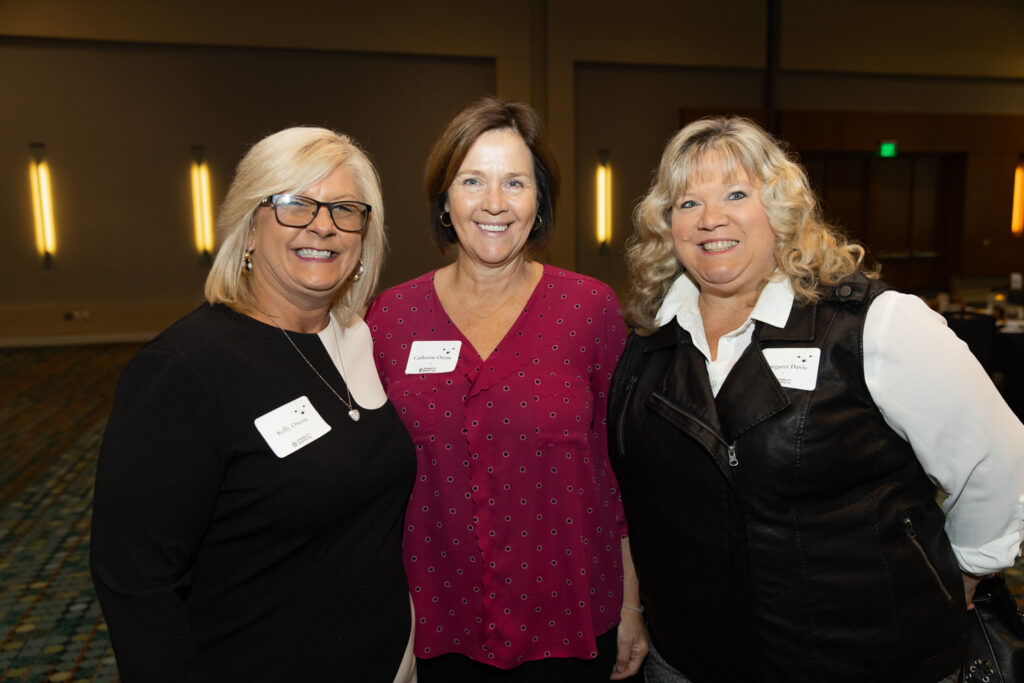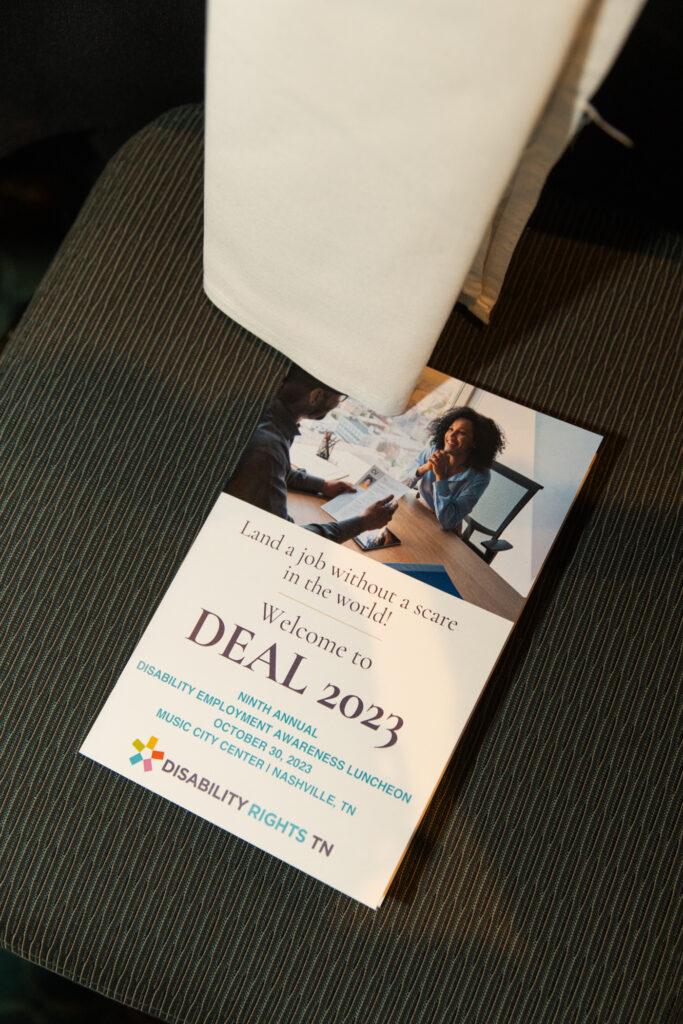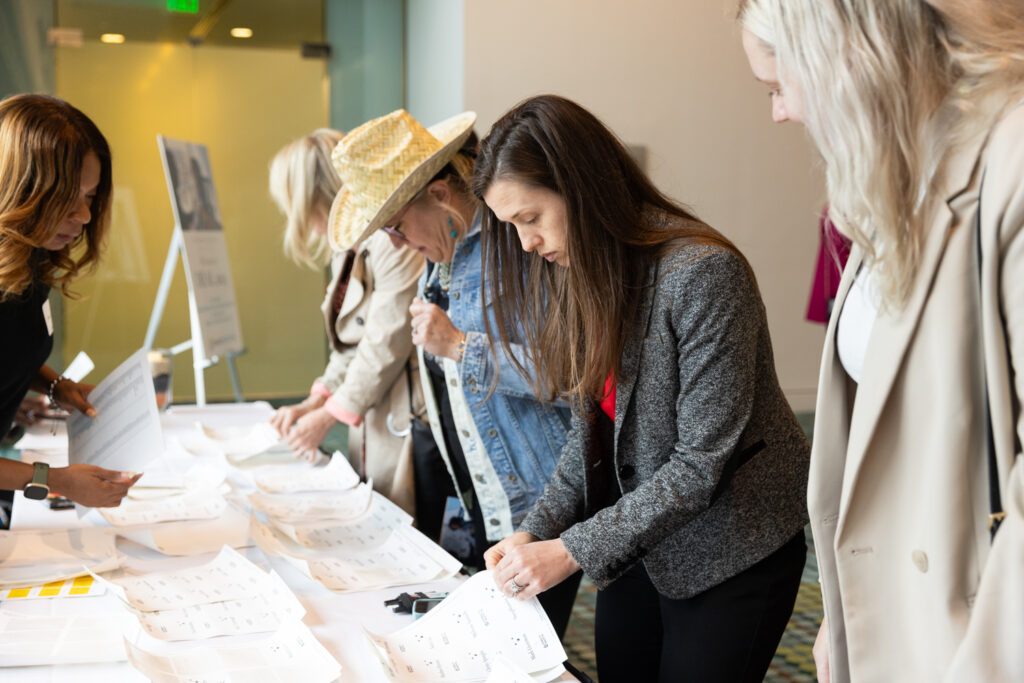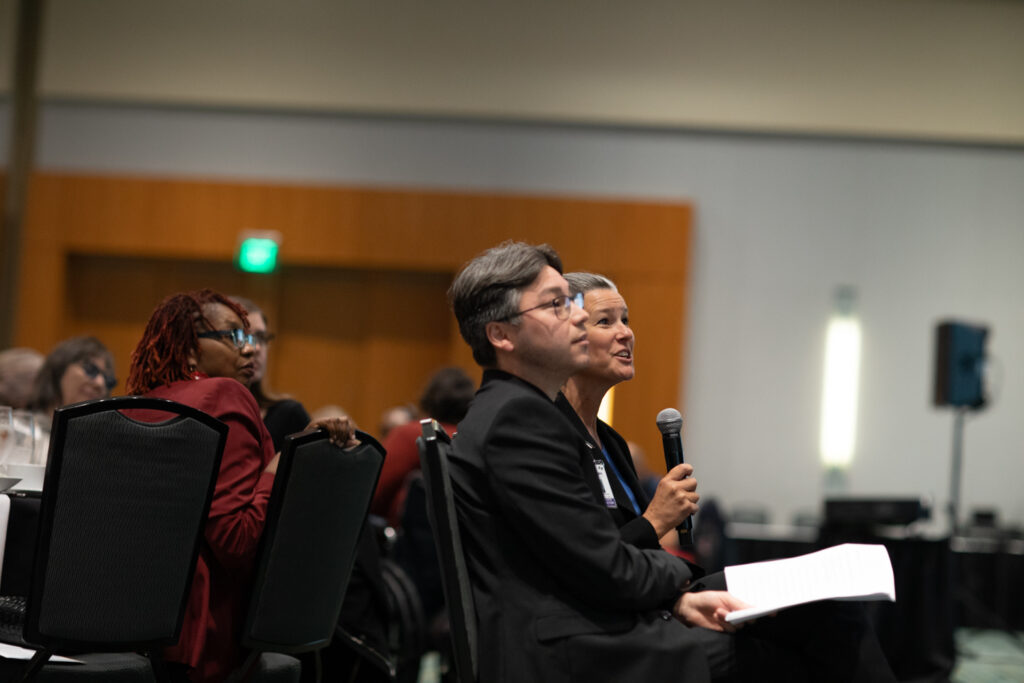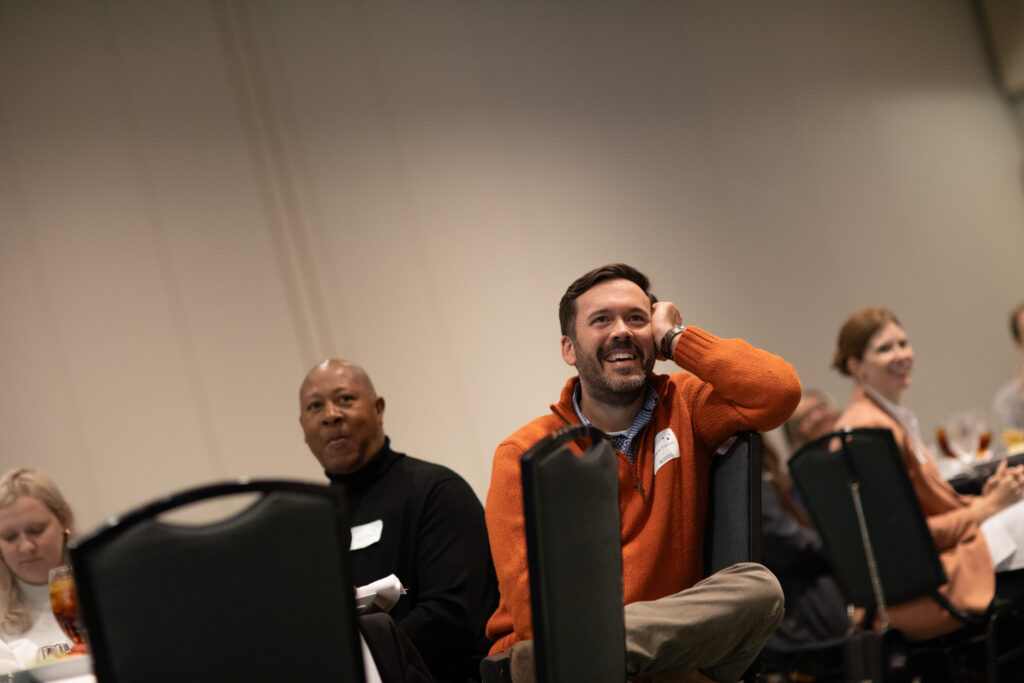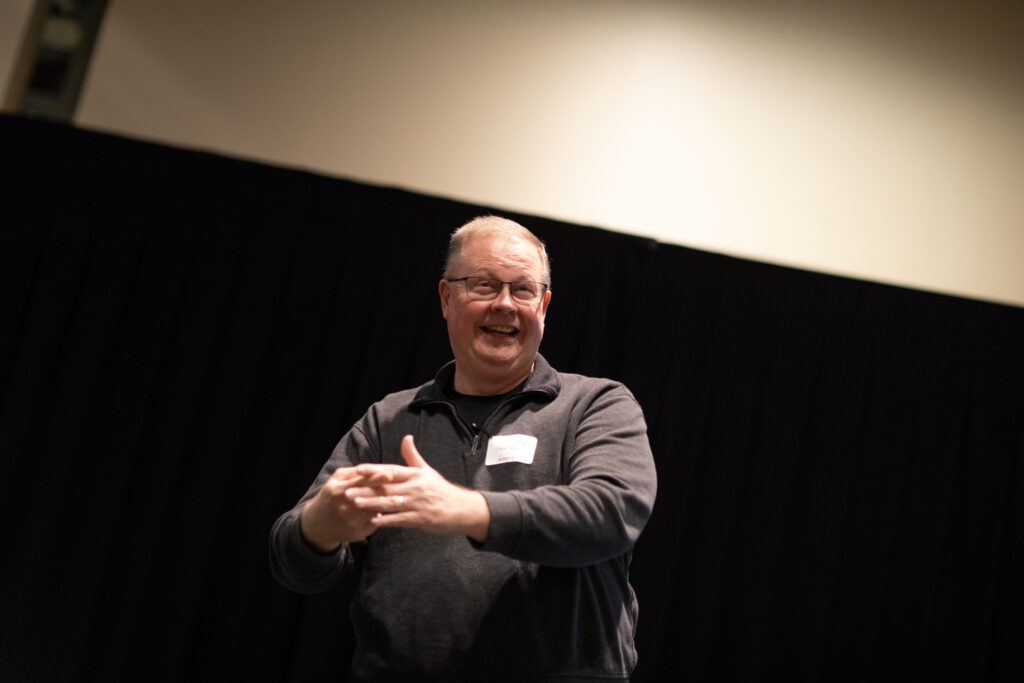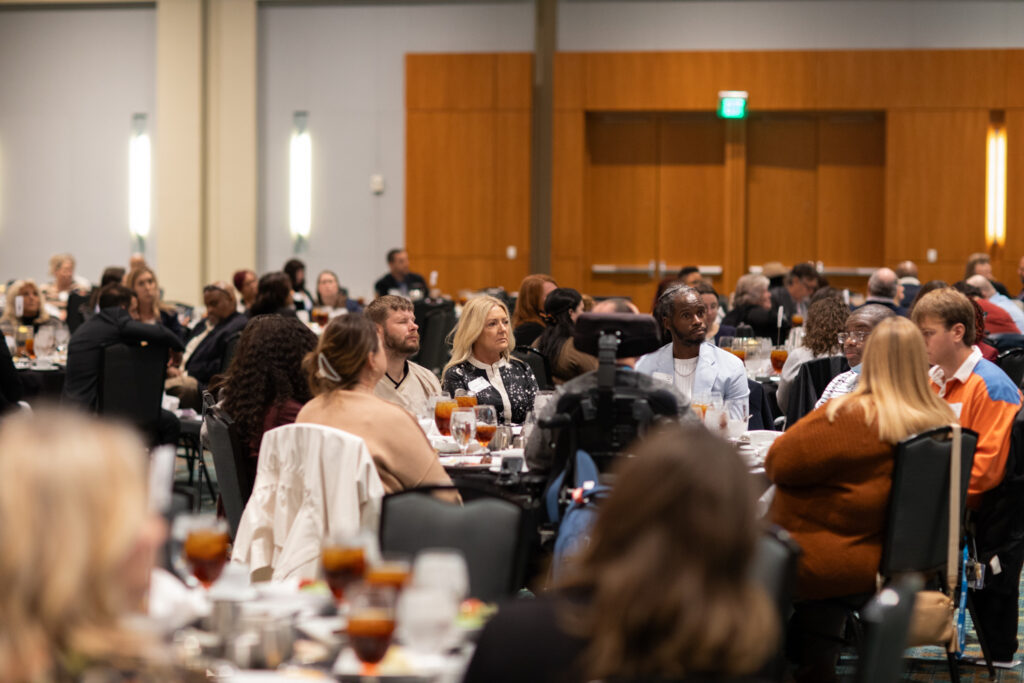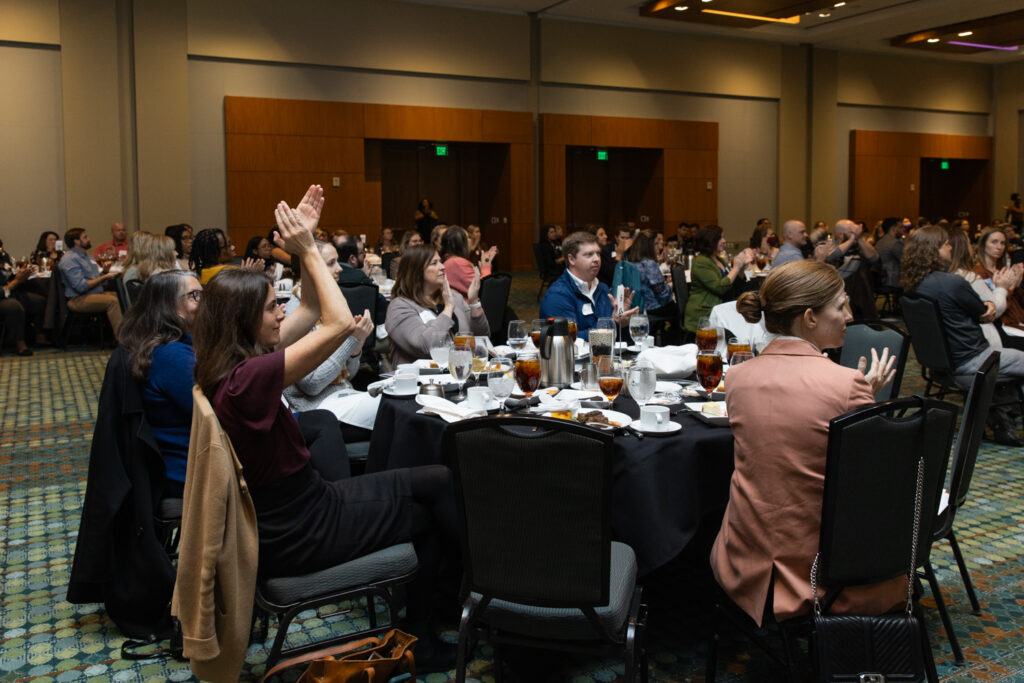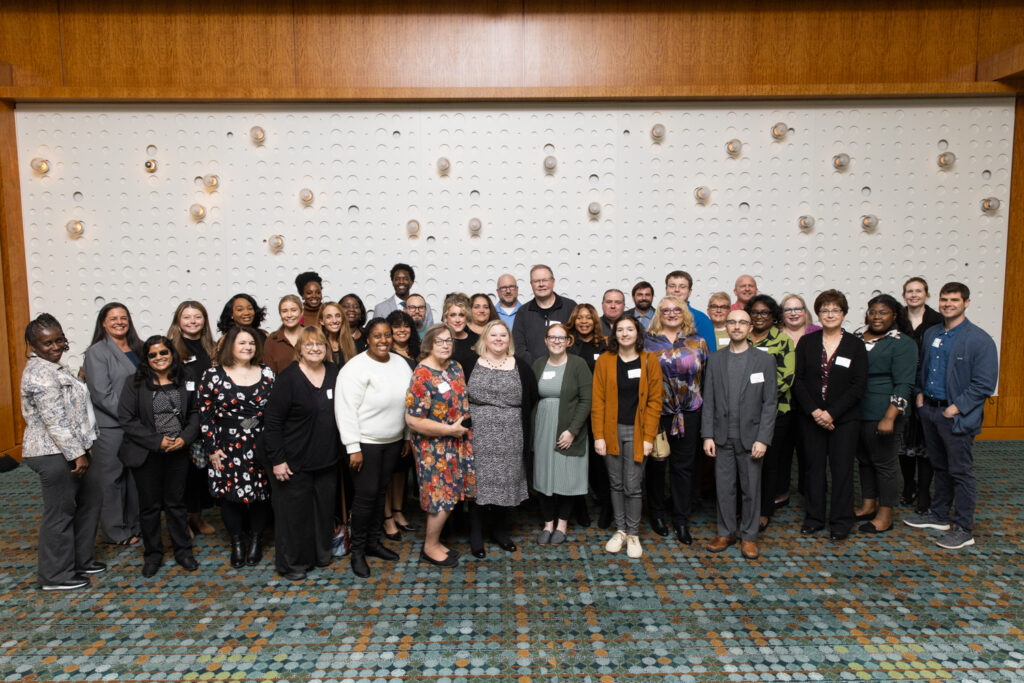Land a job without a scare in the world – DEAL 2023 Recap
The 9th Disability Employment Awareness Luncheon (DEAL) at Nashville’s Music City Center on October 30th was another powerful moment of connection. DEAL is a time for employers and employees alike to share a meal together and listen to speakers from the disability community share best practices and personal experiences. This year’s luncheon marked a special milestone, our first in-person meeting since 2019.
While DEAL focuses on employing Tennesseans with disabilities, each year we differentiate the luncheon with themes. This year’s pre-Halloween date gave DRT the chance to share some spook-tacular jokes and décor, but, the real stars of the show were our keynote speaker, Cookie Brand, and three unique panels highlighting American Sign Language (ASL) etiquette in the workplace, co-occurring disability and mental health diagnoses, and the use of Assistive Technology (AT) on the job.
Disability Rights Tennessee’s heartfelt gratitude goes out to our sponsors, donors, and speakers whose generosity made this event possible. You can dive deeper into the stories of our speakers and the contributions of our sponsors here.
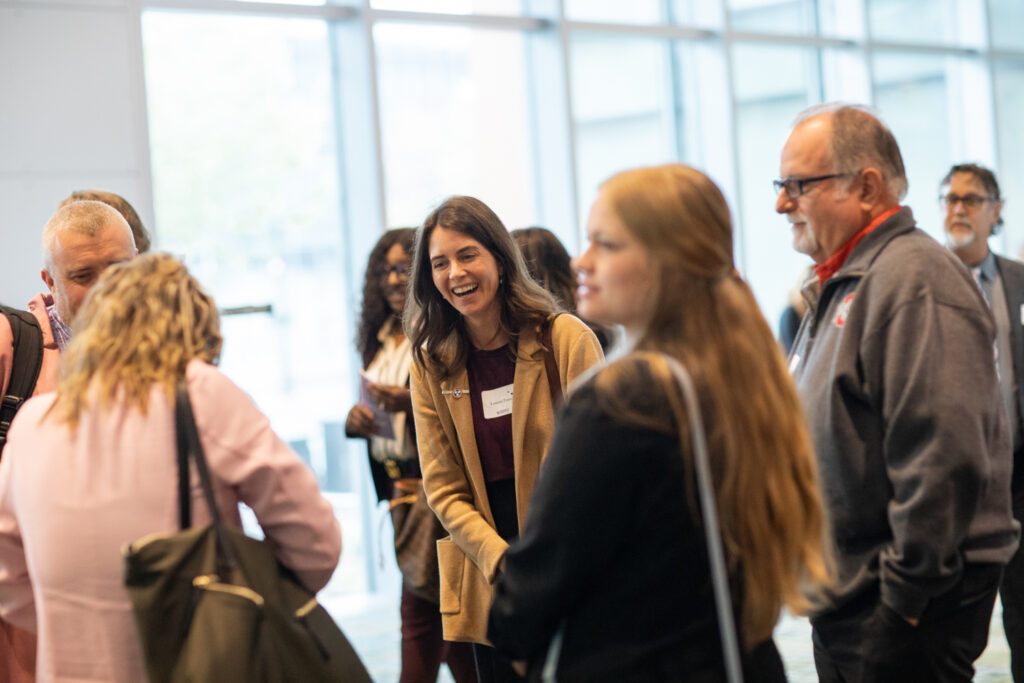
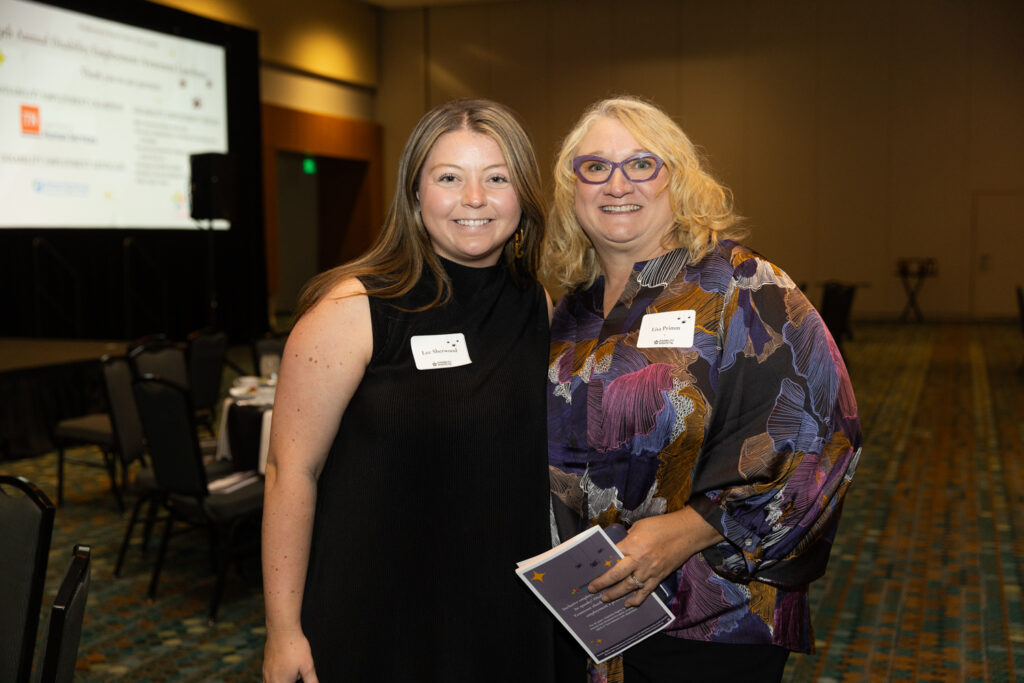
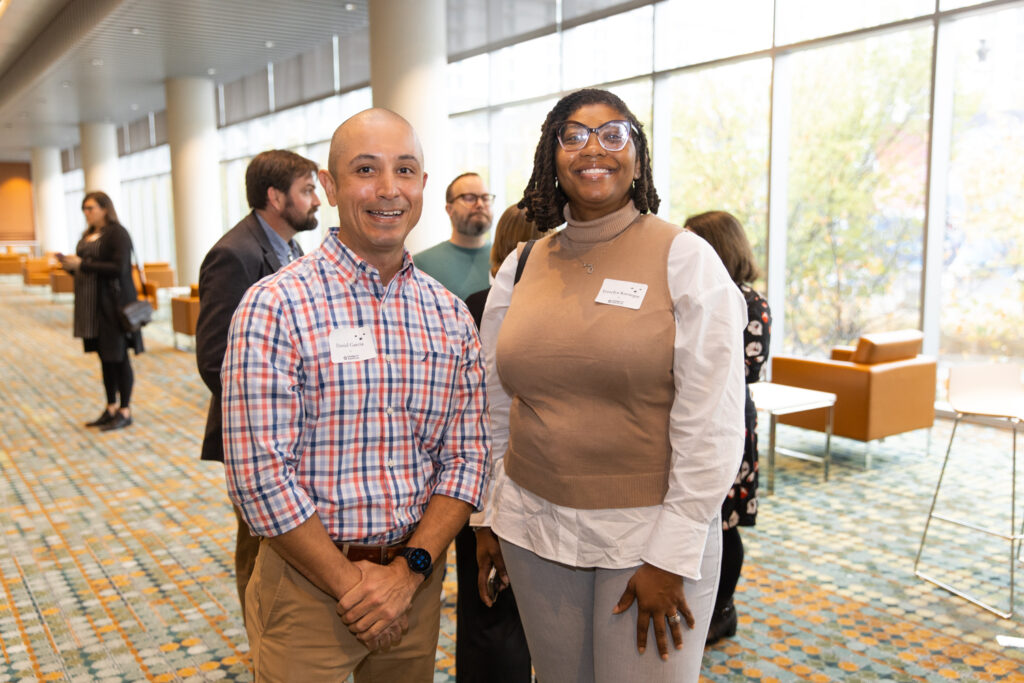
Our Keynote Speaker – Cookie Brand
We were thrilled to welcome Cookie Brand to Nashville to deliver our keynote address. As a woman with co-occurring mental health and disability diagnoses, Cookie shared her personal journey to becoming a Black Deaf School Counselor in Minneapolis in an engaging way that resonated with everyone present. Cookie’s compelling story detailed how she navigates her own Deafness and mental health diagnoses while empowering others, specifically young people, to pursue their passions. Her story didn’t just highlight personal success—it was a call of empowerment for overlooked communities like BIPOC (Black, Indigenous, and people of color) and Queer Deaf groups. By emphasizing the importance of embracing culture, stepping out of comfort zones, and finding your “why,” Cookie’s narrative served as a powerful inspiration, both professionally and personally, encouraging everyone to embrace our unique identities and abilities and use them to better the workforce.
To the employers in the room, I encourage you to look at the whole person. By connecting passion to purpose in workplaces and professional organizations, people with disabilities have greater potential to step outside of their comfort zones and make meaningful contributions. People with disabilities – we’re the best. We’ve come up with solutions no one has thought of because of our barriers and life experiences. Whatever is lacking, we come up with a solution.
Cookie Brand
Cookie’s talk transformed the Davidson Ballroom, creating a connection among all 200+ attendees. Her talk was like a candid conversation with a close friend, detailing the stages of her life with wins, losses, and everything in between. By reminding us to step out of our comfort zones, Cookie showed us that when we accept ourselves and support others to be true to themselves, employment magic happens. Thank you, Cookie, for sharing your journey and time with us.
You can learn more about Cookie’s #DeafSuccessStory, here.
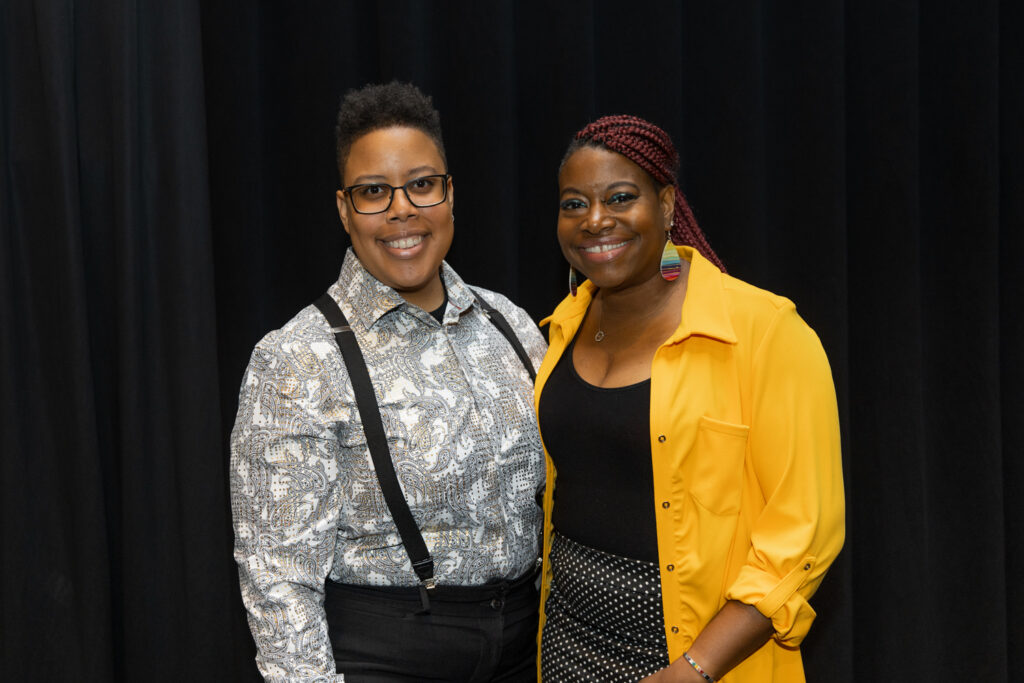
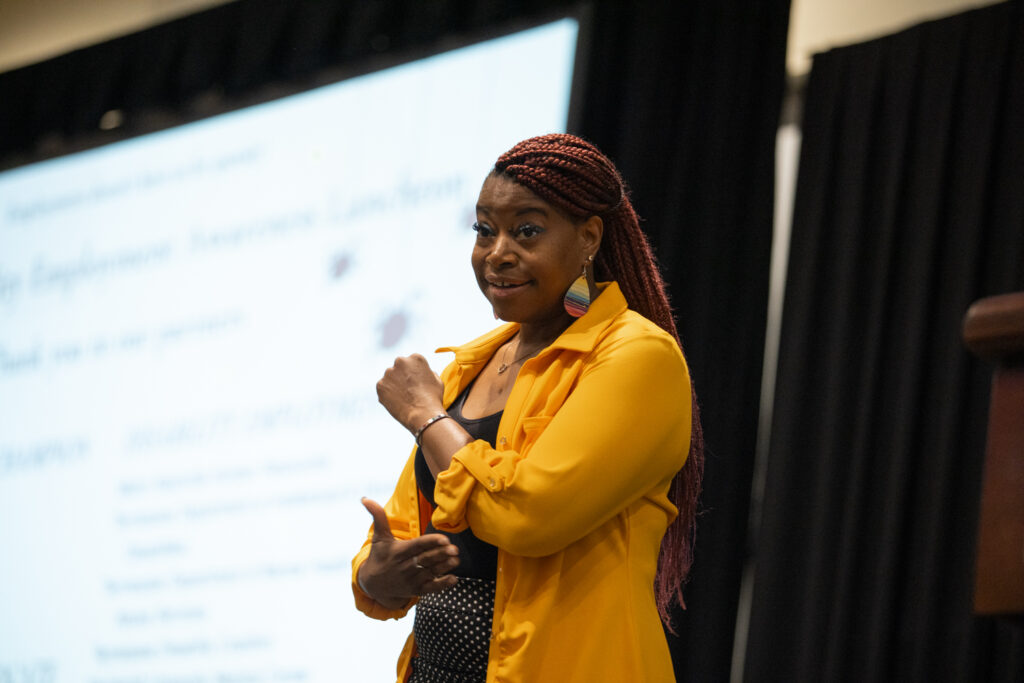
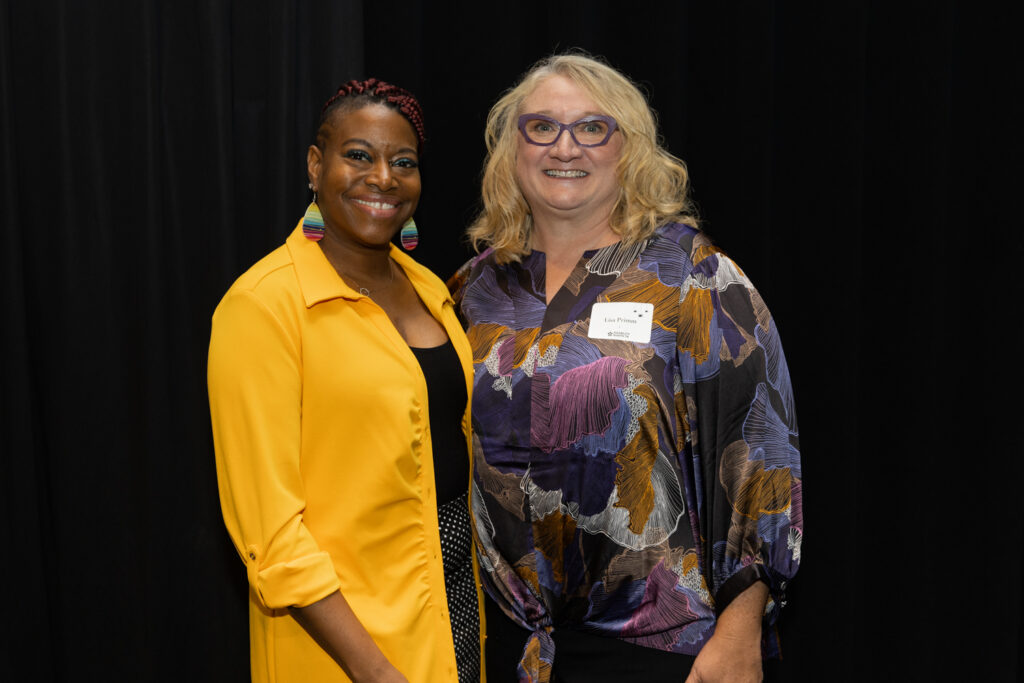
The Panelists and Marlene Sallo
Our 90-minute program packed a powerful punch with three different panels—Bubble Love Nashville, ASL in the Workplace, and IPS Supported Employment—and a video address from NDRN’s Executive Director, Marlene Sallo highlighting national disability employment best practices. Read our program highlighting the stories of all ten panelists here.
Panel #1: Bubble Love Nashville
Bubble Love at the Nashville Farmer’s Market is more than just a local bubble tea spot—it is a symbol of inclusive hiring. On weekends you can find McKenzie Tuckson behind the register with her job coach and mom, Tamara Tuckson. McKenzie and Tamara were joined onstage by Bubble Love’s owner, Anna Fields, and McKenzie’s teacher at Whites Creek High School, Michael Fox. Together they showcased the importance of advocacy, Assistive Technology (AT), and community in the hiring process.
McKenzie does not let her Rett Syndrome diagnosis define her; she instead defines it. Using a Tobii communication device, McKenzie works the front counter at Bubble Love taking orders and accepting payments from customers. Her journey into employment at Bubble Love was a display of community and using one’s voice to highlight unique strengths as McKenzie was recommended to Anna by a friend and current employee. With the help of her teacher Michael, McKenzie refined her customer service skills by roleplaying with her classmates to practice greeting customers, taking orders, and accepting payment.
McKenzie’s success story is a testament to how Assistive Technology creates inclusivity in the workplace, empowering employees to excel and connect with customers and coworkers. We are so thankful that McKenzie, Tamara, Anna, and Michael joined us as a shining example of breaking down barriers and embracing community in the employment process. Make sure you visit them at the Nashville Farmer’s Market next time you are in town.
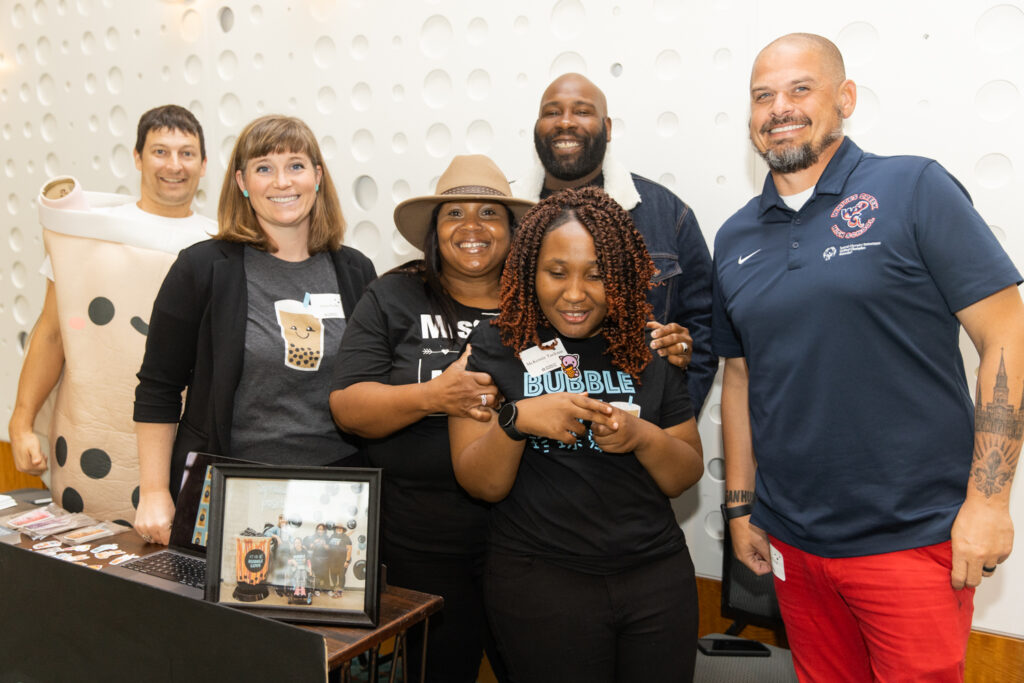
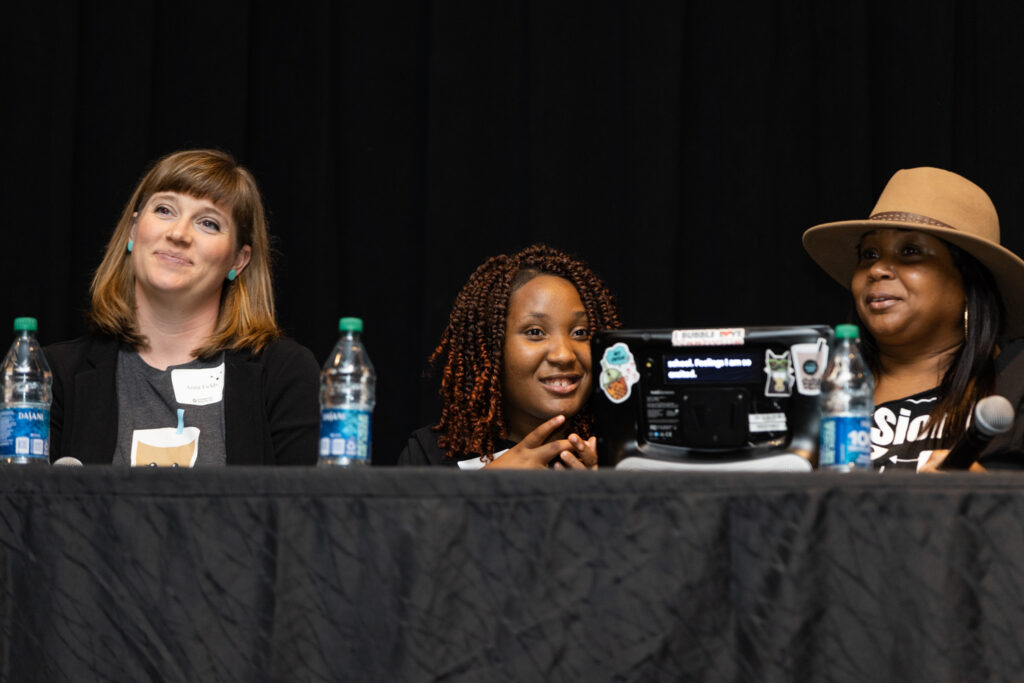
Panel #2: ASL in the Workplace
Our second panel highlighted crucial do’s and don’ts when engaging with D/deaf, hard of hearing, or non-verbal colleagues. We were joined by DRT’s Advocates and Investigators—Chris Nipper and Craig Lemak—and Molly Anderson, the Director of Peer Support at the Tennessee Disability Coalition. Through this session, our three panelists shared personal narratives, highlighting the wide range of experiences in Deaf culture. These personal narratives weren’t just stories, they were lessons for our audience, offering insights into the challenges and pride of being part of the D/deaf, hard of hearing, and non-verbal community.
The panel unveiled how popular culture can often perpetuate damaging stereotypes, inadvertently promoting practices that hinder understanding and inclusivity. The insight from our panelists served as a lesson for audience members, highlighting the necessity of having qualified interpreters present rather than assuming that lip-reading or writing something down is a sufficient way to communicate, for example. Chris, Craig, and Molly echoed a clear message: workplace inclusivity comes from proactive measures and a mindset of understanding and respect.
We are so grateful that Craig, Chris, and Molly joined us onstage. We also want to say a special thank you to the incredible interpreters from Bridges that made our event accessible for all guests.
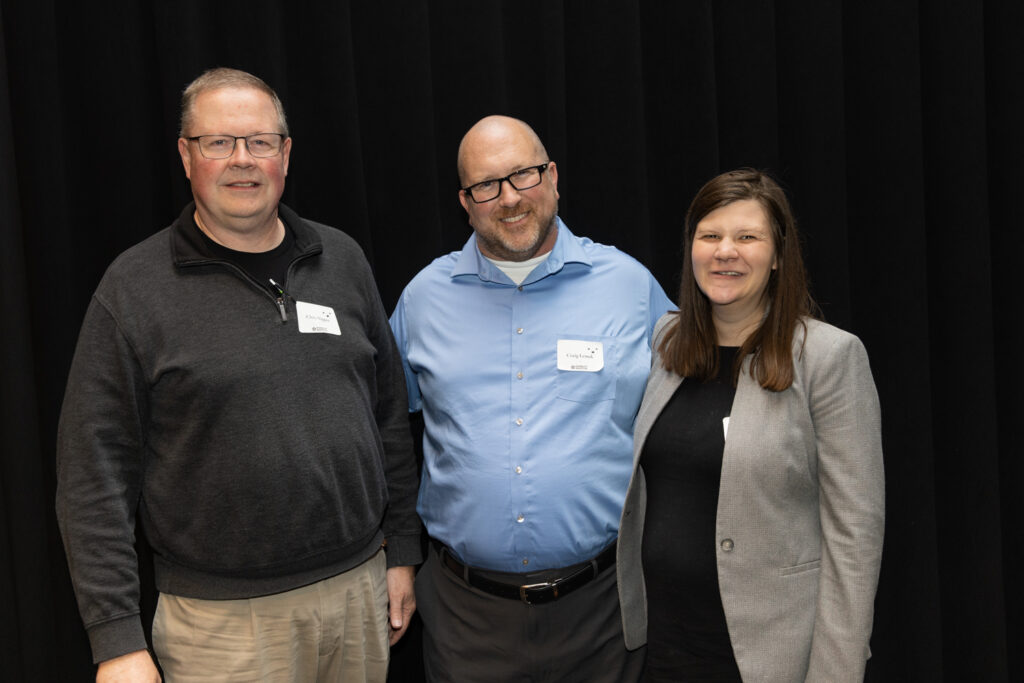
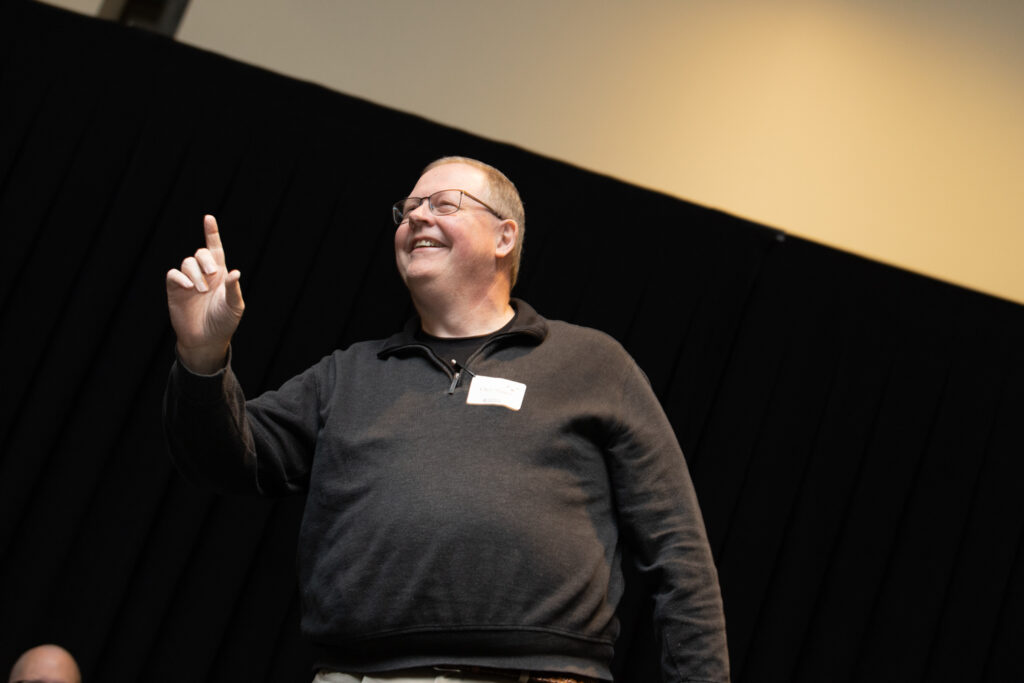
Panel #3: IPS Supported Employment
Last but certainly not least, we were joined by Jordan Young, Bradley Shute, and Richard Rittenberry to discuss their experience in the Individual Placement and Support (IPS) Supported Employment model. This empowering approach to employment offers hands-on assistance for adults with mental health diagnoses, helping them in securing a job and providing ongoing support in the workplace to ensure success. To learn more about the IPS Supported Employment Model in Tennessee, click here.
Bradley shared his vulnerability with guests to put things in perspective—he once hesitated to mark the disability box on job applications due to fear of backlash from potential employers but now proudly acknowledges the unique strengths that come with his diagnosis. Mental health comes in all shapes and sizes. It isn’t something that should prevent an employer from hiring someone.
Jordan Young, as the Director of Employment, Education, and Support at Tennessee Mental Health Consumers’ Association (TMHCA), champions increased access to supported employment programs and leads IPS expansion across Tennessee. As a veteran member of TMHCA with over 13 years of participation, Bradley Shute started his employment journey with the IPS team. Finally, Richard Rittenberry, an education coordinator, stands as a visionary leader, significantly impacting mental health wellness across Tennessee. Their stories resonated deeply, painting a picture of empowerment and resilience in the face of mental health challenges.
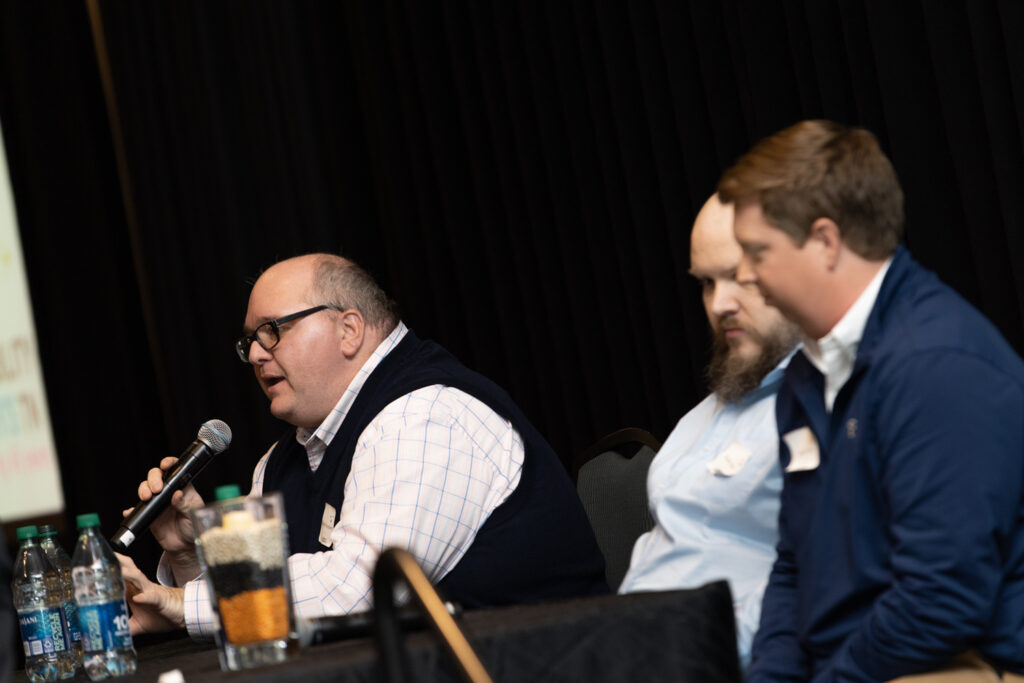
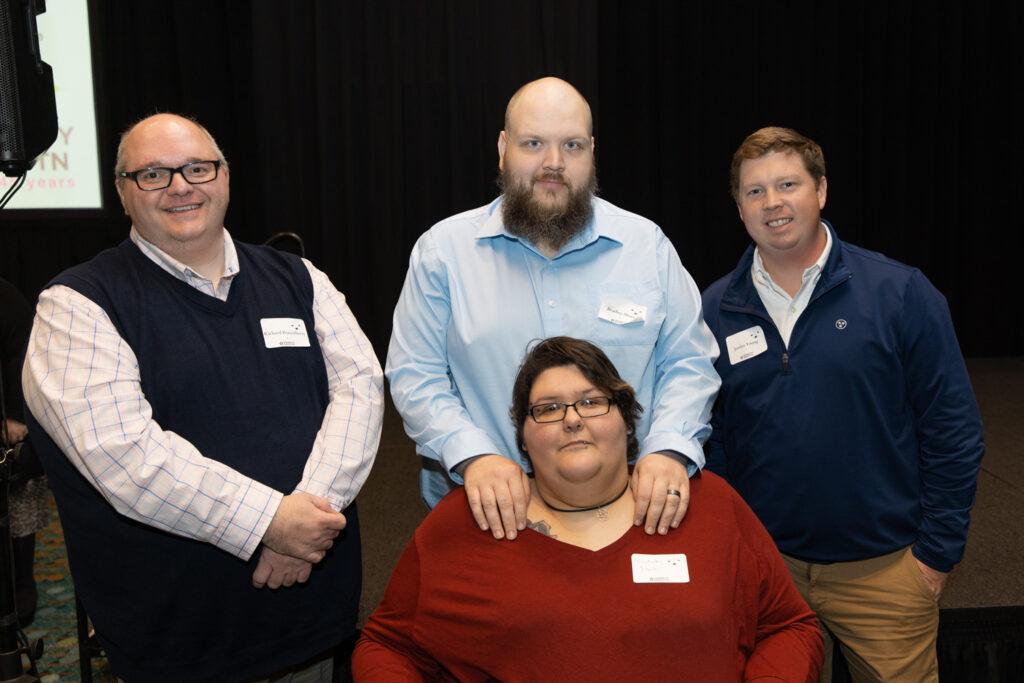
Marlene Sallo
Marlene Sallo, NDRN’s Executive Director, is no stranger to breaking down barriers in the workplace. She joined us virtually to share her experiences as the first woman, first Latina, and first person with a disability to be appointed to her position at the National Disability Rights Network (NDRN). Marlene shared valuable insights with both employers and prospective employees in the room that the workforce is richer and more diverse when we employ individuals with disabilities, but only 23% of people with disabilities are employed. She believes (and we agree) that employers should encourage staff talent, development, and diversity. View Marlene’s address here.
The sky is the limit! Barriers do exist, and discrimination is real, but self-advocacy can help you surpass this!
Marlene Sallo
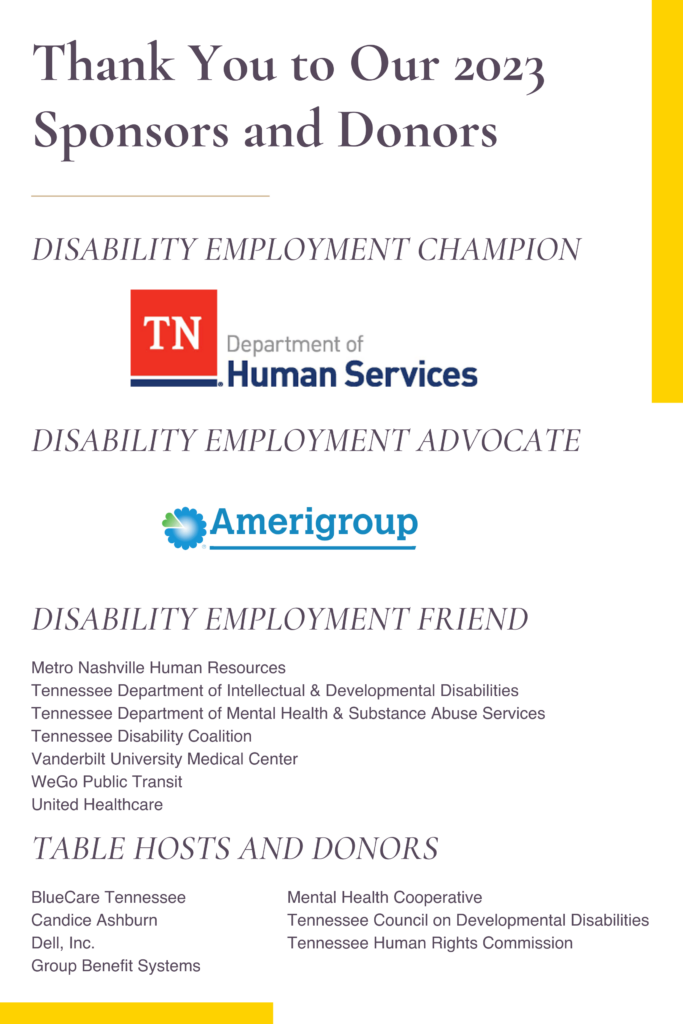
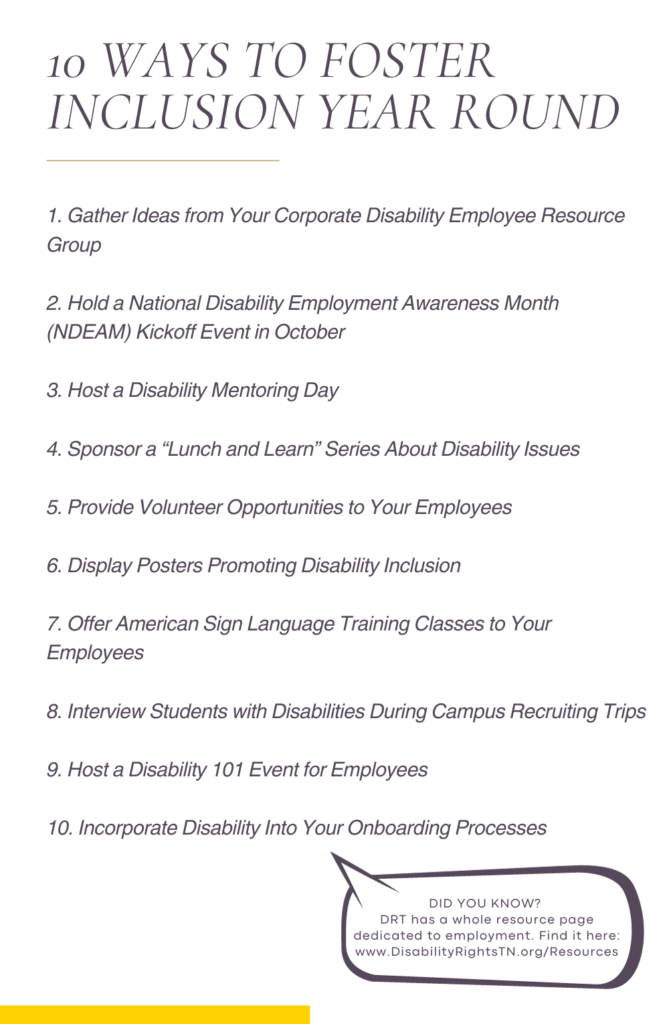
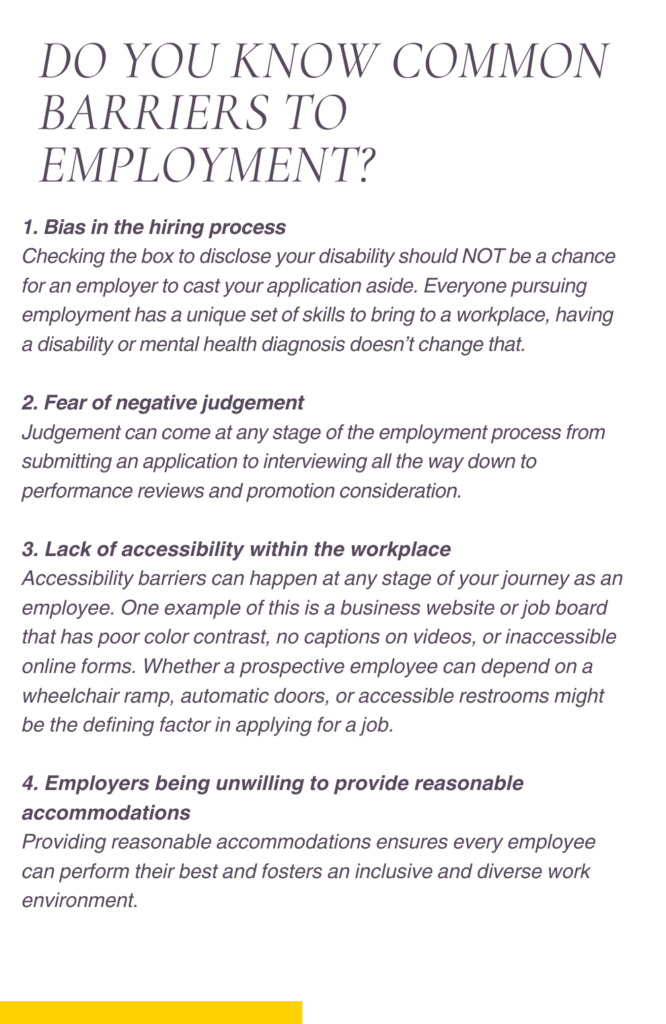
DEAL 2023 Photo Gallery
